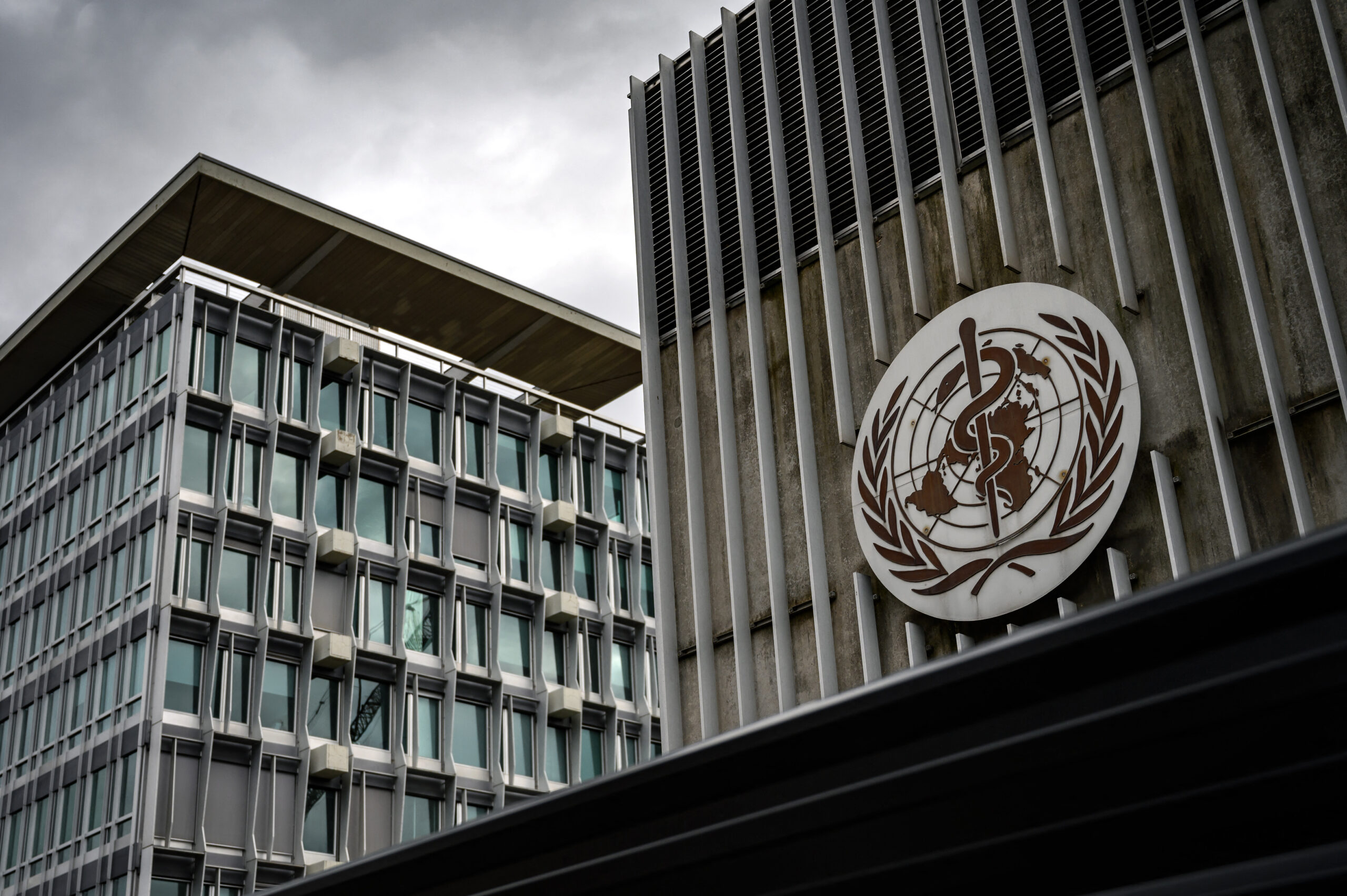
World Health Organization (WHO) headquarters in Geneva. —Photo by Fabrice Coffrini/Agence France-Presse
MANILA, Philippines — A new report by the World Health Organization (WHO) has found that vaccines against 24 pathogens could reduce the global daily doses of antibiotics needed, thereby supporting worldwide efforts to address antimicrobial resistance (AMR).
Some of these vaccines are already available but underused, while others need to be developed as soon as possible and brought to the market.
Article continues after this advertisementThe 168-page report, titled “Estimating the impact of vaccines in reducing antimicrobial resistance and antibiotic use,” evaluates the role of vaccines in reducing AMR and provides recommendations for enhancing their impact.
FEATURED STORIES GLOBALNATION She thought her baby’s sweet scent was a blessing; it’s a deadly illness GLOBALNATION US missile deployment to PH important for combat readiness – US general GLOBALNATION House to SolGen: File raps to seize land from ChineseREAD: Updated COVID vaccines are here and they’re effective
AMR occurs when bacteria, viruses, fungi and parasites no longer respond to antimicrobial medicines, making people sicker and increasing the risk of illness, death and the spread of infections that are difficult to treat.
Article continues after this advertisementIt is driven largely by the misuse and overuse of antimicrobials, particularly antibiotics. Yet, at the same time, many people around the world do not have access to essential antimicrobials.
Article continues after this advertisementThe report released on Oct. 10 analyzed 44 vaccines targeting 24 pathogens—19 bacteria, four viruses and one parasite.
Article continues after this advertisementIt estimated that vaccines already in use against typhoid and pneumococcus pneumonia such as Haemophilus influenzae type B or HiB—a bacteria causing pneumonia and meningitis—could avert up to 106,000 of deaths each year associated with AMR.
The pentavalent vaccines (5-in-1) provided by the Department of Health (DOH) to newborns for free, under its National Immunization Program, offer protection against diphtheria, tetanus, pertussis, hepatitis B and HiB.
Article continues after this advertisement Developing vaccinesAn additional 543,000 deaths associated with AMR could be averted annually if new vaccines for tuberculosis and Klebsiella pneumoniae are developed and rolled out globally.
“Addressing antimicrobial resistance starts with preventing infections, and vaccines are among the most powerful tools for doing that,” WHO Director General Dr. Tedros Adhanom Ghebreyesus said in a statement.
“Prevention is better than cure, and increasing access to existing vaccines and developing new ones for critical diseases, like tuberculosis, [are] critical to saving lives and turning the tide on AMR,” he added.
Hospital costsEach year, nearly 5 million deaths are associated with AMR globally, according to WHO estimates.
Vaccinated people have fewer infections and are protected against potential complications from secondary infections that may need antimicrobial medicines or require admission to hospital.
For example, vaccines against Streptococcus pneumoniae—including the pneumococcal conjugate vaccine (PCV) which the DOH-NIP offers for free to senior citizens—could save 33 million antibiotic doses.
Vaccines for tuberculosis—which are also mandatory in the Philippines for newborns—could save between 1.2 and 1.9 billion antibiotic doses.
Globally, the hospital costs of treating resistant pathogens, as evaluated in the report, are estimated at $730 billion (P42 trillion) each year.
If vaccines could be rolled out against all the evaluated pathogens, they could save a third of hospital costs associated with AMR and reduce the global daily doses of antibiotics needed by 22 percent or 2.5 billion.
Reducing fatalitiesDuring the 79th United Nations General Assembly High-Level Meeting on AMR on Sept. 26, world leaders approved a declaration committing their nations to a clear set of targets and actions by 2030—such as reducing by 10 percent the estimated 4.95 million fatalities associated with bacterial AMR.
In the Philippines, the Research Institute for Tropical Medicine recorded in 2019 alone the 15,700 deaths attributable to and 56,700 deaths associated with AMR.
To prevent its spread, the DOH discourages the public against self-medication and using antibiotics without consulting a doctor.
Subscribe to our daily newsletter
The DOH also reminds the public to complete the prescribed course of treatment or take the complete doses of antibiotics.wingo
READ NEXT UAE pardons 143 OFWs jailed for minor offenses PH, allies hold joint naval exercises ‘to respond to any cri... EDITORS' PICK Garcia restores original Sinulog theme for 2025, drops Rama’s plan Party-list system: What to know ahead of 2025 polls Heart Evangelista: Woman to woman, I never had a problem with Pia Wurtzbach Central Visayas’ most wanted killed in shootout in Argao, Cebu UPDATES: 2025 elections precampaign stories QC Mayor Belmonte highlights social services in State of City Address MOST READ DILG identifies 38 hotspots ahead of 2025 polls LIVE UPDATES: Tropical Storm Kristine Marcos smiled, walked away when asked about VP Duterte's accusation NBA: Wizards' Corey Kispert agrees to 4-year, $54M deal View comments